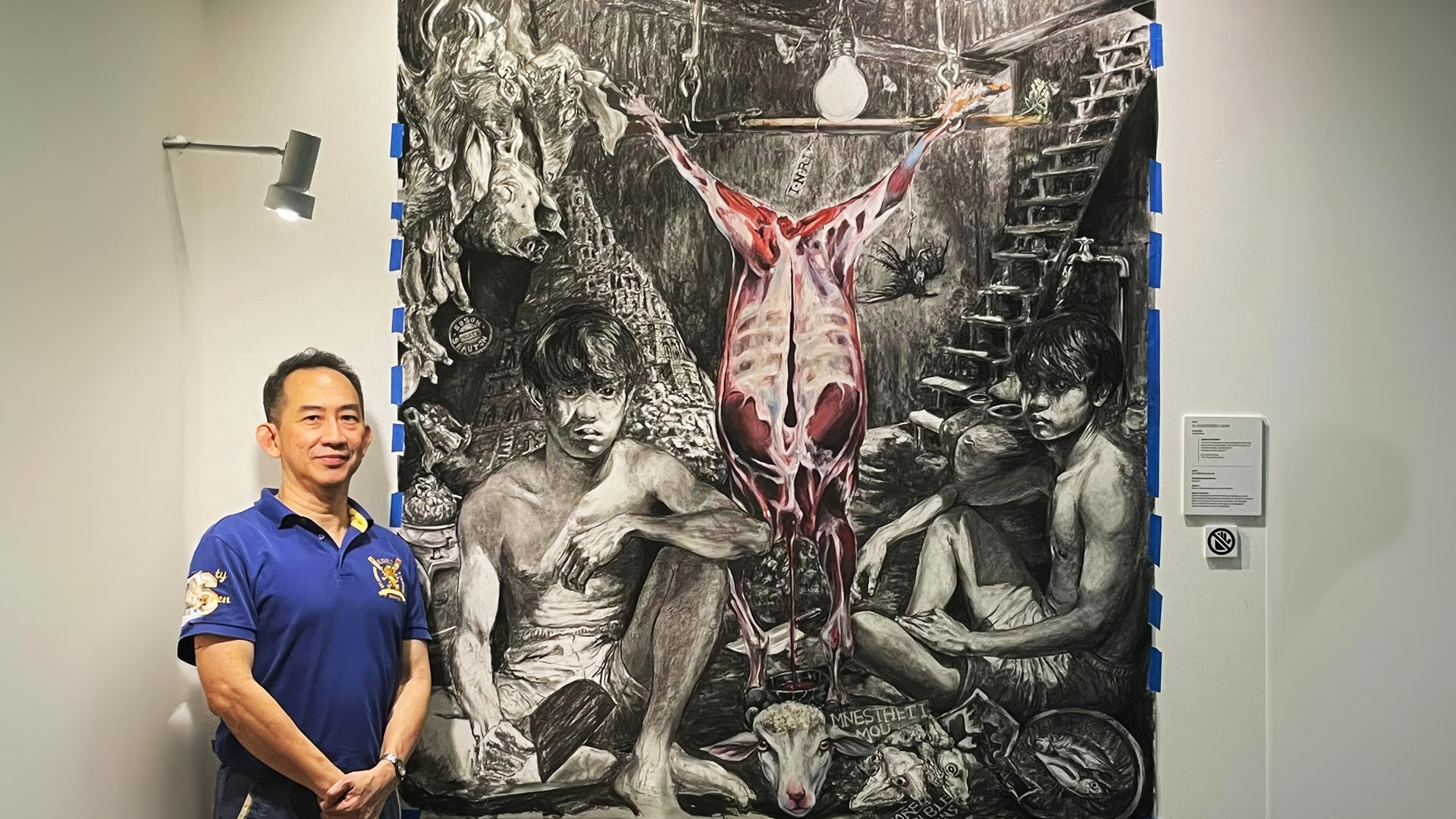In tandem: New book of poems and collages displays healing hand of God
Ethel Lim // July 15, 2021, 8:04 pm
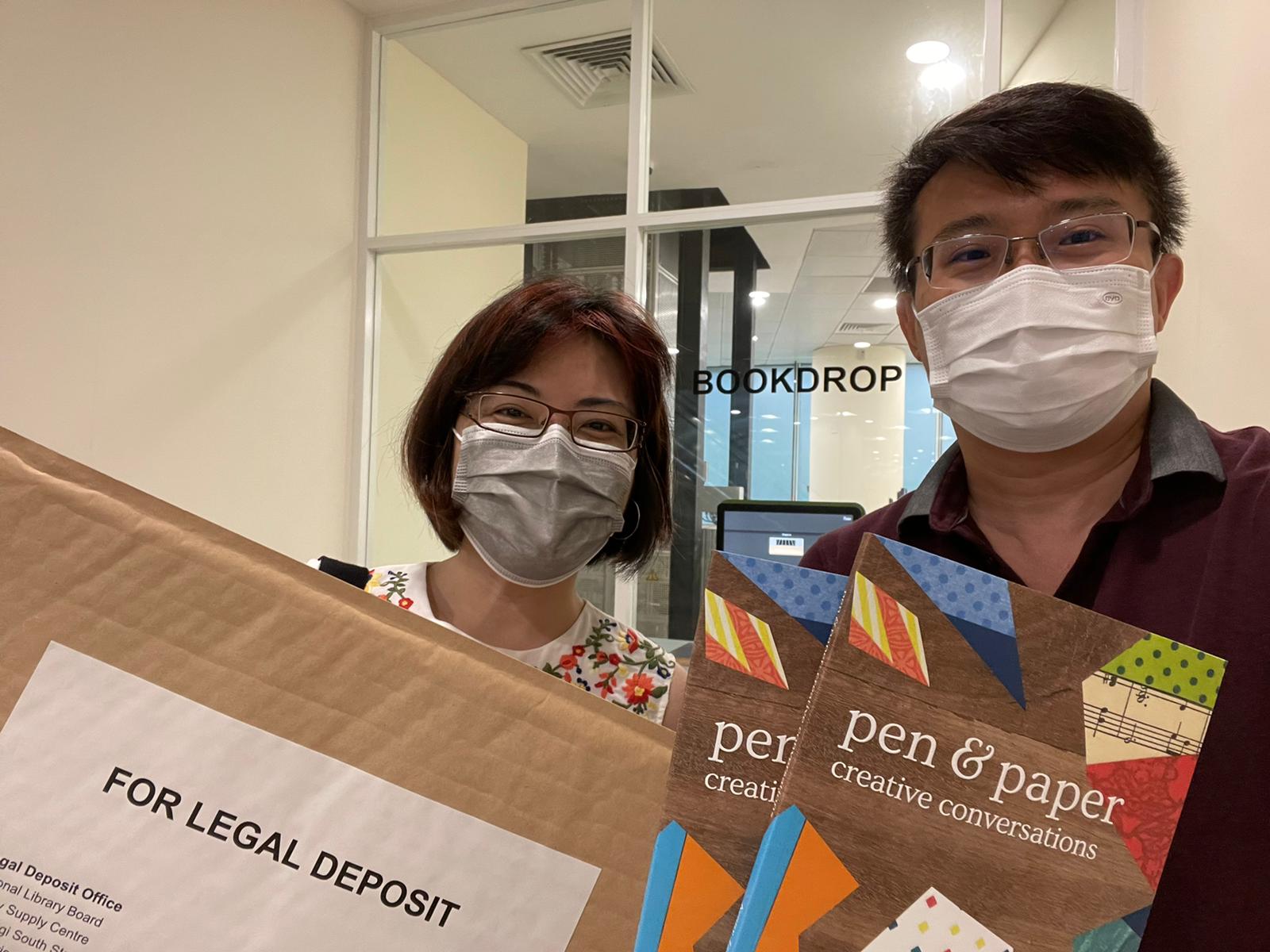
Wendy Wong and Kenny Tan hope their new book, Pen & Paper: Creative Conversations, will help their readers find themselves in God. Photo courtesy of Kenny Tan.
When they found that writing poetry and the practice of developing collages helped them deal with negative emotions, Wendy Wong and Kenny Tan set about giving creative expression to how it also helped to heal their brokenness.
Their combined work, Pen & Paper: Creative Conversations, is a collection of collages paired with 20 poems inspired by life, as well as passages from Scripture for meditation. Interspersed between these are pages left blank for the reader to, perhaps, add his or her own reflections.
“It’s just so powerful for us to go back into Scripture, and to have that habit of using it as a lens and language,” Wong said. “When we allow Scripture to meet, challenge and gnaw away at us, we are giving it space to confront the things we’ve kept hidden.”
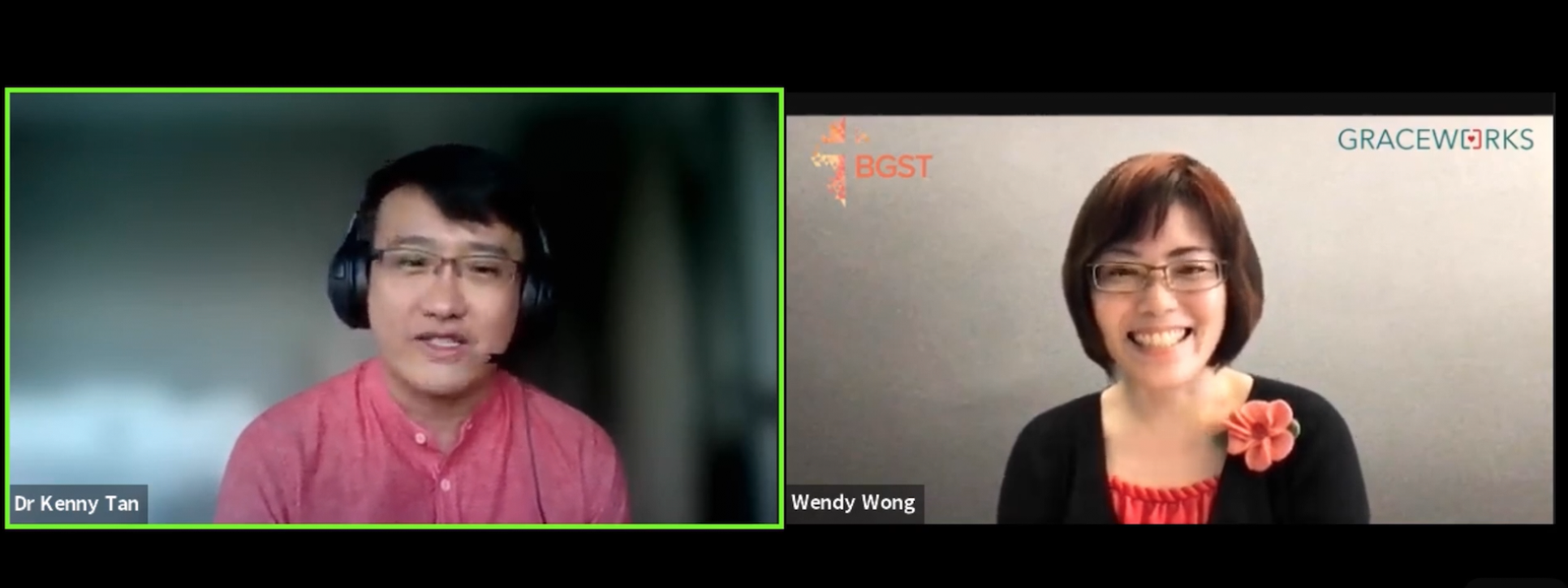
The launch of Pen & Paper marked the beginning of conversations among people from all walks of life that Kenny Tan and Wendy Wong hope to spark. Screenshot from Pen & Paper online launch.
Not by might
Neither happens to be a trained artist nor poet.
“When we allow Scripture to meet, challenge and gnaw away at us, we are giving it space to confront the things we’ve kept hidden.” – Wendy Wong
Wong is a listener by profession. In her work as a visual recorder, she condenses what is being said in meetings, conversations, or presentations, integrating words and pictures to make real-time summaries on large pieces of paper.
Tan is the Chief Executive Officer of St Luke’s Eldercare. Sharing that he had to learn how to listen – not just to God, or another person, “but also to myself” – he said: “Sometimes, that’s one of the hardest things to do, because we do not give it time or space to come.
“When I stumbled upon poetry writing, I was forced to listen first to the voice I so often quell: the voice of myself. To hear where I was emotionally, and why.”
Citing the context of his poem, “Gideon”, he offered: “Covid had been raging on, and I was also going through my doctoral module, which prompted a delve into all kinds of readings and reflections about life, work, ministry.
“All of that came together to push me into a dark period that was overwhelming.
“Yet, I really thank God for this medium of poetry that allows me to say stuff that is really deep inside that I can’t really put into prose.
“ ‘I am done’ was a prevailing thought in my life and in the poem. I wanted to give up.
“But part of the discipling of our emotions and response to God is to accept what we feel, pause, and then come back again to God, and know that He is still good and true.”
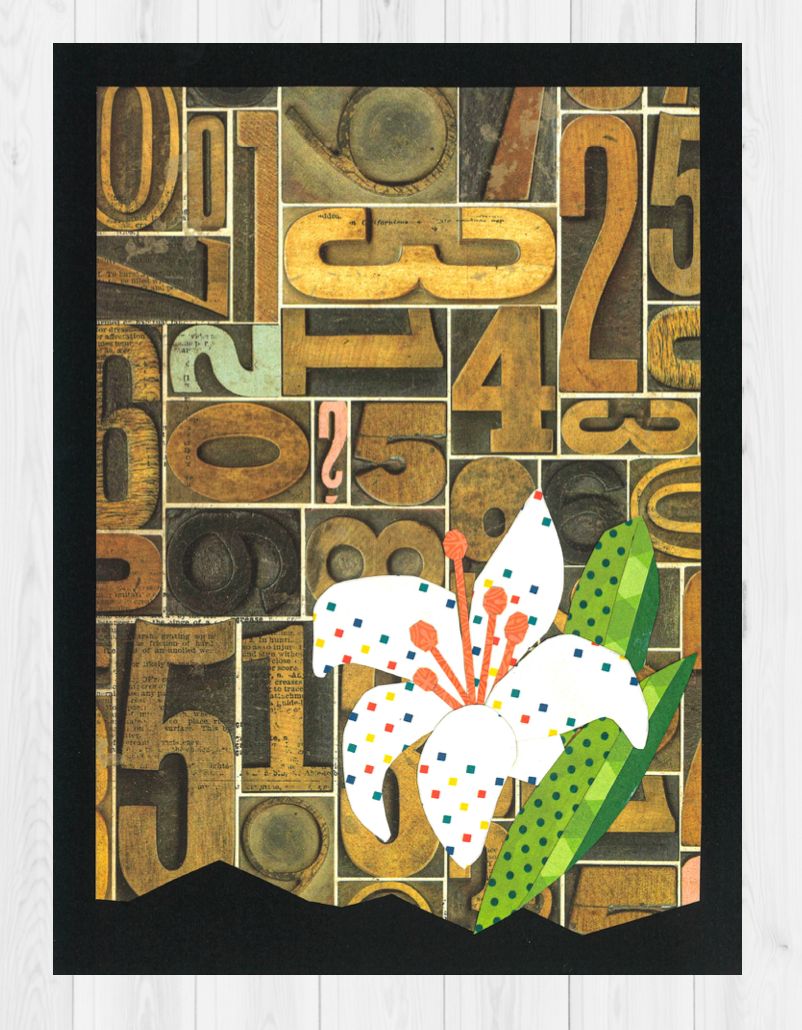
“David” by Wendy Wong: Despite not knowing Wong’s friend David, Tan’s poem accompanying this collage was so apt as to move her. Photo from Pen & Paper.
Reality bites
Tan and Wong are the first to admit that their book doesn’t always paint “a very pretty picture” of what it means to walk with God.
“But we try our best to mirror back what it means to be confronted by God, and about the places where, mercifully, there is still a lot of room for His grace and mercy to transform us,” Wong said.
One of her collages, “Bridegroom”, is largely made up of what she calls “negative space”. It was inspired by Jesus turning water turned into wine “in the midst of the ordinariness of life”. (John 2:1-11)
“When we find ourselves in the negative spaces of life, the tiny miracles of God become a lot more apparent to us.” – Wendy Wong
“If you would go to Jesus and ask, you would find that there are many places where water does turn into wine, only if you are open to it,” she elaborated.
“When we find ourselves in the negative spaces of life, the tiny miracles of God become a lot more apparent to us. If we are still enough, even though these spaces are void, they are also full of meaning.”
Another collage illustrating this principle is one entitled “David”, in honour of a friend who died of kidney failure after being on dialysis for 40 years. Wong fashioned it as she compared his life with that of King David and found parallels in their walk with God.
In the background is a jumbled mixture of numbers representing all the time he had spent on dialysis, the medicine he had to track, and the numbers that were crucial in identifying the status of his condition.
“It was always down to decimal places, when he talked about lab results. Like if he was 0.2 off, it would be really bad.”
It also speaks of the 17 days of his last lap, spent in the Intensive Care Unit (ICU) during the 2020 Circuit Breaker. “Whenever you encounter someone that is fighting this kind of battle, you are reminded to number your days (Psalm 90:12), because only God knows when your ordained time is up.”
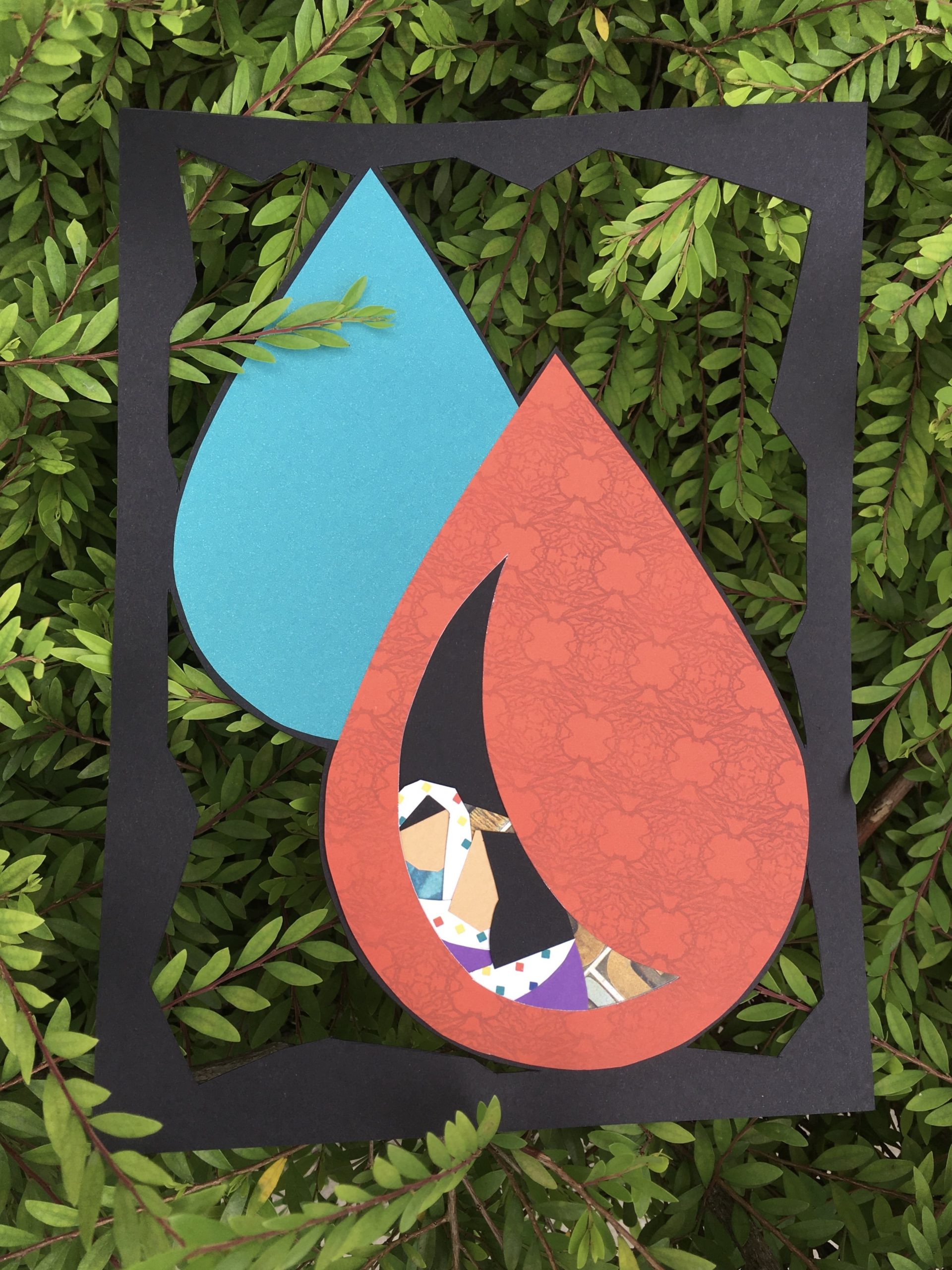
“Bridegroom” by Wendy Wong: “The empty space represents all the different places and stations that we find ourselves in.” Photo courtesy of Wendy Wong.
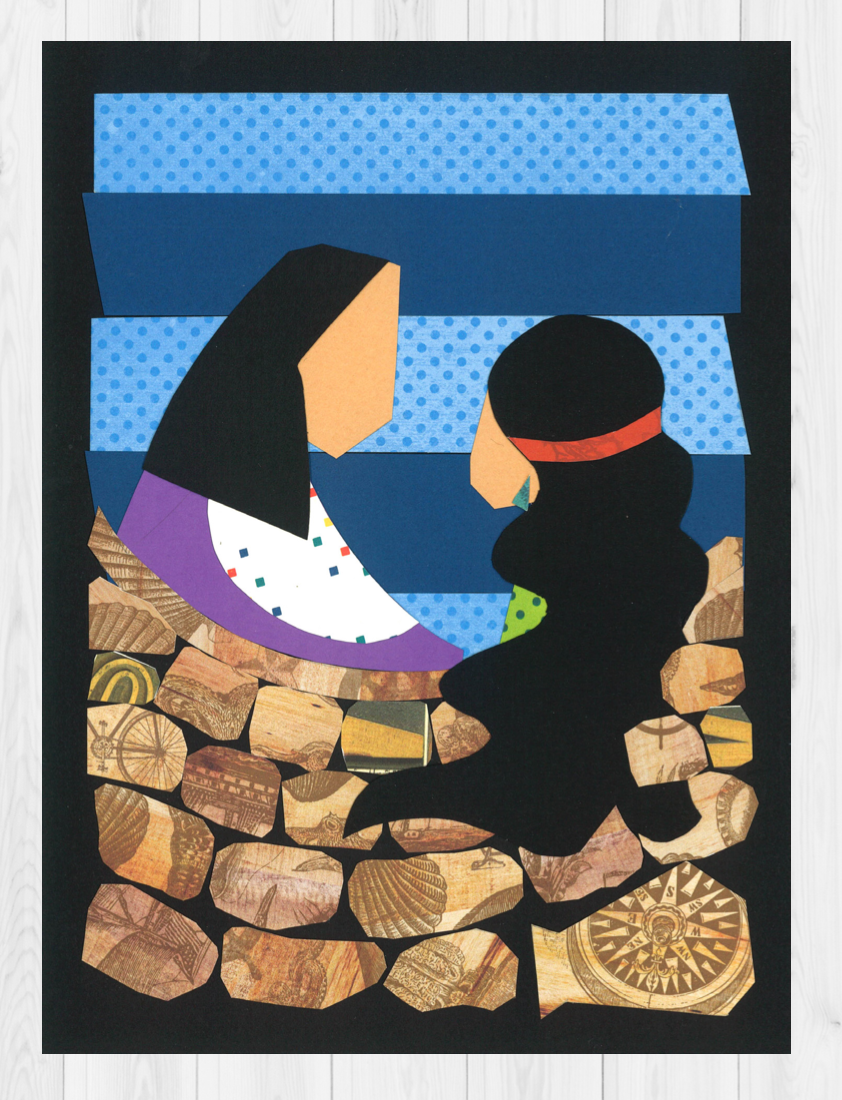
“Well” by Wendy Wong: “The woman at the well’s tear-shaped earring symbolises all the sorrow that she has had in her life, while the jar on the bottom right is the water jar that she leaves behind after her conversation with the Lord.” Photo from Pen & Paper.
The shared journey
For Tan, the poet in this partnership, the beginning of a poem often comes when he is at the end of himself. “Once I give up trying to find the best words to say to God, that’s when the real words come out. And when I allow myself to speak to the Lord about these things, then He pours His heart into mine.”
“Sometimes in our isolation, God meets us and speaks into our lives.” – Kenny Tan
Describing his struggle in writing the poem on the woman at the well (John 4:1-42), he said: “When I started to step into her shoes, I realised that I was just like the Samaritan woman – insecure and fearful of being vulnerable, because I don’t know what people are thinking of me.
“Maybe they know that I am as imperfect as I think I am. But sometimes in our isolation, God meets us and speaks into our lives.
“It struck me that we are all just like that whore when we run after other things and away from God. It’s as uncomfortable as that.
“And yet, as uncomfortable as we are to be vulnerable to people before God, God accepts us, and He gives us living water to thirst no more.
“This whole journey through the poem taught me that at the end of the day, He satisfies us.”
Of their shared experience in producing the book, Wong said: “For us, the space and practice of art has allowed us to hone those muscles so that we can use scripture as our lens, speech, and posture.”
Pen & Paper: Creative Conversations, published by Graceworks, is available for purchase here for $20. All proceeds go to Biblical Graduate School of Theology, at which both Wendy Wong and Kenny Tan were once students.
RELATED STORIES:
Home away from Home: Churches and charities express God’s love to stranded Malaysian workers
We are an independent, non-profit organisation that relies on the generosity of our readers, such as yourself, to continue serving the kingdom. Every dollar donated goes directly back into our editorial coverage.
Would you consider partnering with us in our kingdom work by supporting us financially, either as a one-off donation, or a recurring pledge?
Support Salt&Light

